Allion Labs obtained official USB Power Delivery EPR certification from the USB Implementers Forum (USB-IF) on June 9, 2023, following authorization. The testing items and testing equipment required for the certification are as follows:
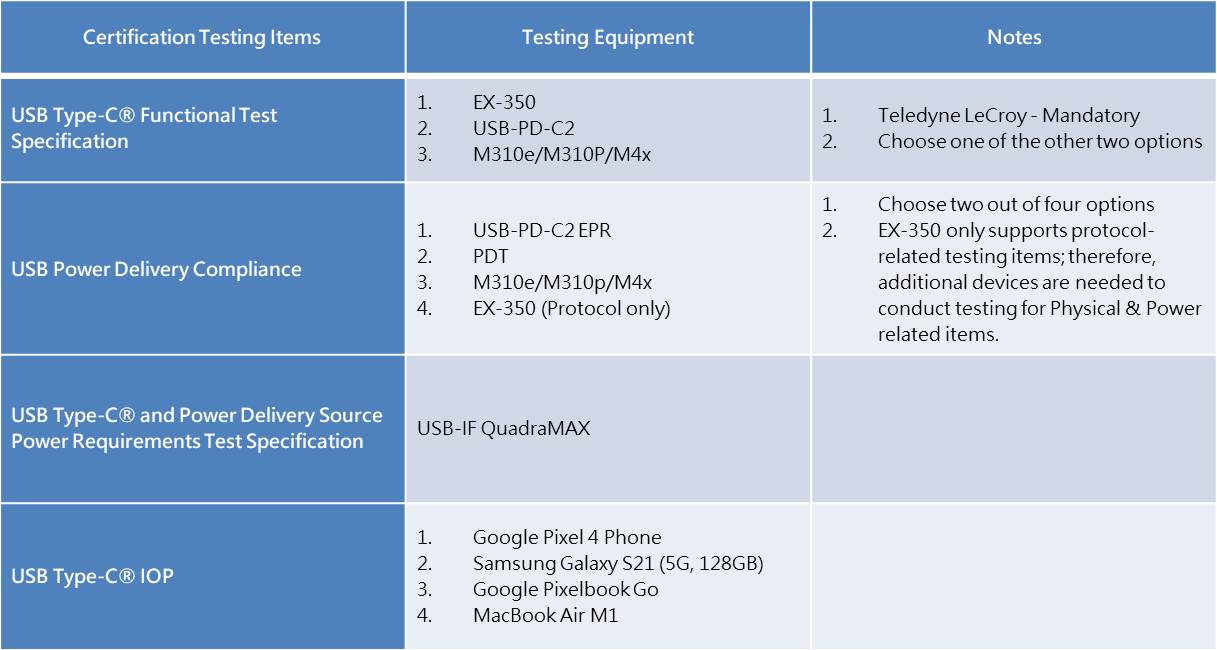
Currently, there are certain restrictions on the types of USB Power Delivery EPR products that can be certified. USB-IF requires certified products to have only one USB Type-C® port as an EPR capable source port.
What this means is a product may be multi-port and have only one EPR capable source port but it may have more than one EPR capable sink port. Products may also have an SPR capable source port and an EPR capable source port.
In addition to the aforementioned restrictions, it is important to note that certification cannot be obtained for an EPR capable source port that does not support AVS, as AVS is a mandatory requirement for EPR.

The latest USB-IF compliance updates are as follows:
The latest USB-IF compliance updates are as follows:
Ⅰ Deprecation of EHCI Testing. USB2CV and EHCI IOP
Ⅱ Decrease to One Test Equipment Solution for SPR Products
Notes: The EX-350 only supports protocol-related testing items. Therefore, additional devices are required to conduct testing for physical and power related items.
Notes: The temporary waiver can be granted by USB-IF until February, Y2024
Ⅳ FRS & USB4 should be run in the latest USB Power Delivery CTS for informational purpose
Ⅴ TEST.PD.PROT.ALL3.8 in the latest USB Power Delivery CTS
Notes:
Respond with the correct revision: Pass
Respond with Not Supported: Temporary Waiver
Respond with nothing: Fail
Ⅵ COMMON.CHECK.PD.9 in the latest USB Power Delivery CTS
Detailed information:
PD CTS update
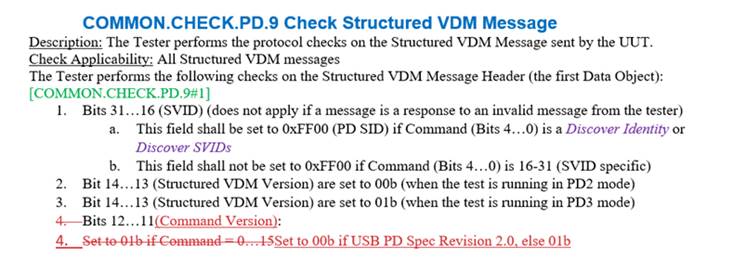

Detailed information:
PD Spec. update

Notes: The CTS will always be testing against the most current version of the base CTS. Any failures relating to previous versions will go through the waiver process
Ⅶ Define Vbus slew rate measurements in the latest USB Power Delivery CTS
Detailed information:
◈ Affected Test item
➱ PD.PS.SRC.1 Multiple Request Load Test
➱ PD.PS.SRC.2 PDO Transitions
➱ PD.PS.SNK.3 Multiple Request Load Test Post PR Swap
◈ Vbus slew rate measurements (Appendix E)
➱ Turn all filtering and sample averaging off and work only with the raw signal samples
➱ Collect data samples with rate at least 20uS/Sample
➱ Start collecting signal samples after receiving Accept Message and before sending the last bit of GoodCRC Message. Record the Voltage Level as V1
➱ Stop collecting signal samples upon receiving PS_RDY Message. Record the Voltage Level as V2. – Calculate the difference ΔV = |V2 – V1|
➱ If ΔV < 3.5V, the slew rate measurement could not be accurately calculated, and the measurement disregarded.
➱ Find the first sample that exceeds V1 + 0.1*ΔV for the Positive Transition (V2>V1) or getting below V2 + 0.9*ΔV + for the Negative Transitions (V2< V1) and corresponding sample number Sn_A from the last bit of GoodCRC– point A
➱ Find the first sample that exceeds V1 + 0.9* ΔV + for the Positive Transitions or getting below V2 + 0.1*ΔV + for the Negative Transitions and corresponding sample number Sn_B from the last bit of GoodCRC – point B
➱ Find SR = (Vpoint_B – Vpoint_A)/(Sn_B – Sn_A)*R
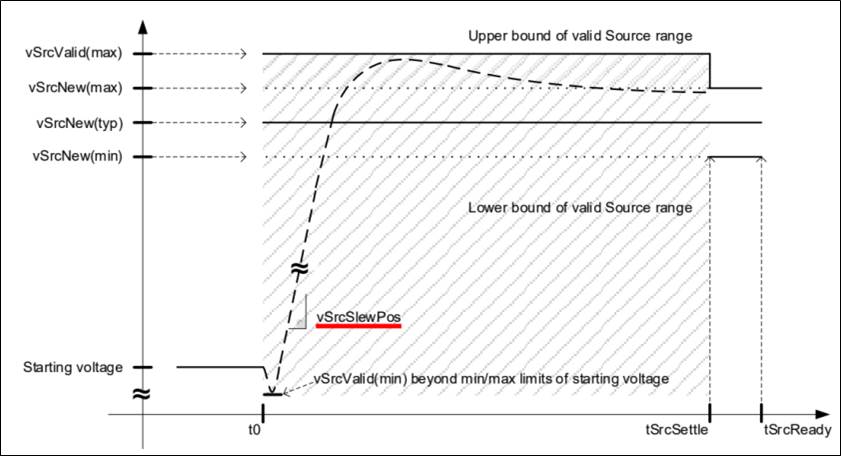
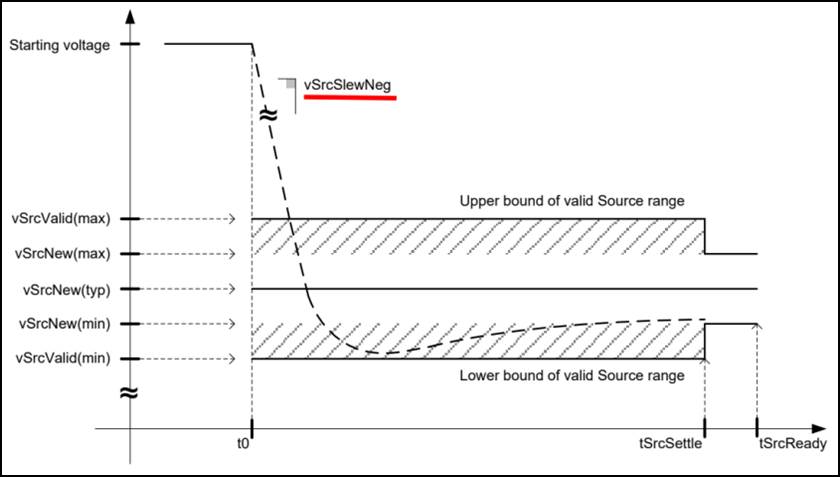
Ⅷ Remove the monotonicity requirement
Detailed information:
• Affected Test item
SPT.1 Load Test in USB Type-C and PD Source Power Requirements CTS
• If USB-IF QuadraMax reports the monotonicity issue, the vendors can ignore it and no waiver is required
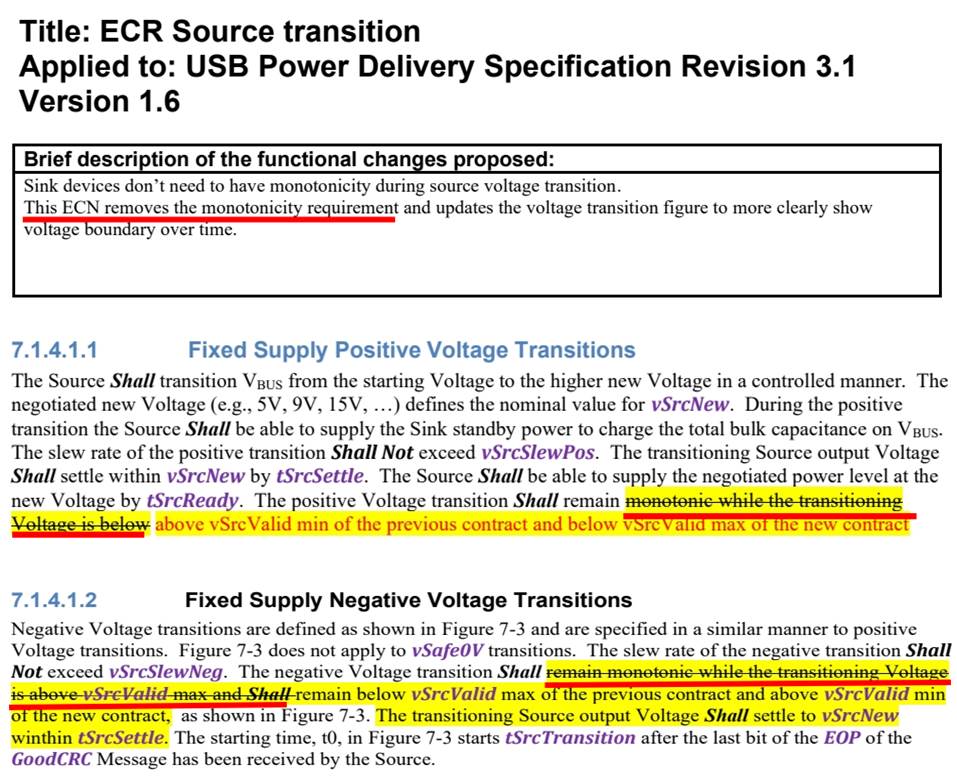
Ⅸ Update to PPS Requirements
Detailed information:
• Affected Test item
SPT.6 PPS Voltage Step Test in USB Type-C and PD Source Power Requirements CTS
• If USB-IF QuadraMax reports the min voltage issue (3.3V), the vendors can request a wavier
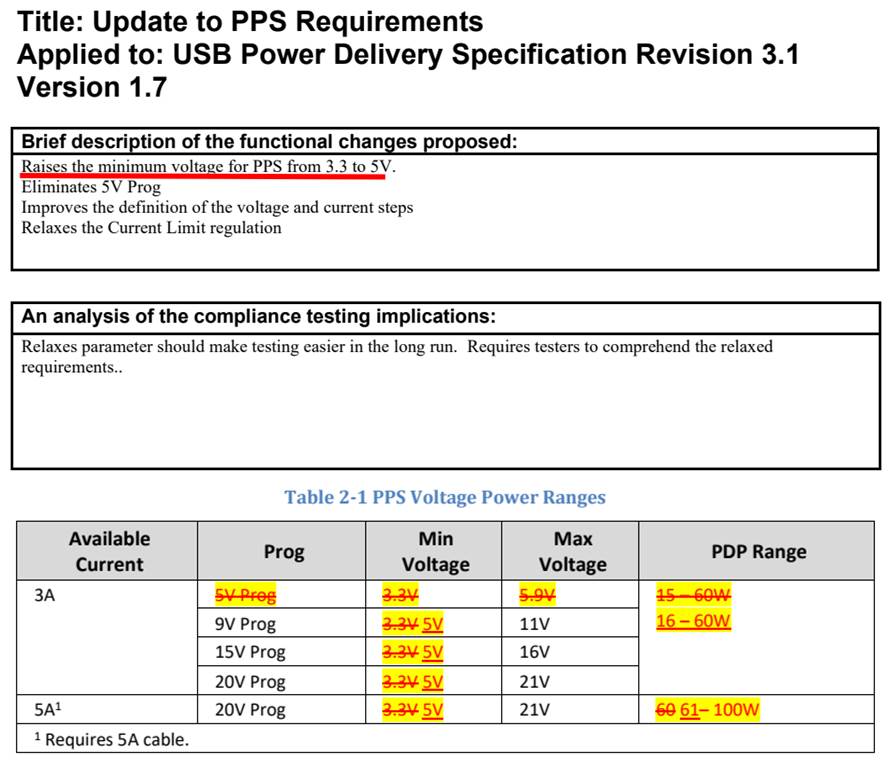
USB Type-C®and USB-C® are registered trademarks of USB Implementers Forum.
For more information on y USB Power Delivery EPR ecosystem consulting and validation services, please feel free to contact us at: service@allion.com

































